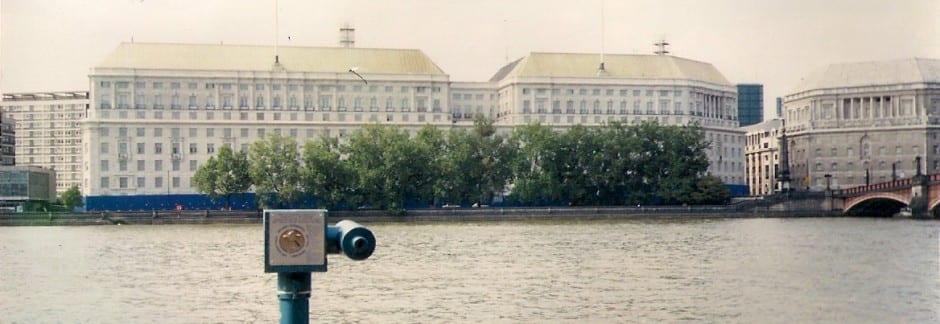A version of this post first appeared on The Conversation blog on 22 October 2015.
The so-called Wilson Doctrine, a parliamentary convention which has, for almost fifty years, protected the communications of parliamentarians from interception by the intelligence and security agencies is coming under increasing pressure. The convention was established in 1966 by the then Prime Minister, Harold Wilson, in response to growing parliamentary pressure to reveal whether the security services had been tapping MPs’ telephones. The Wilson Doctrine comprises two elements, the first and most widely known was Wilson’s assertion ‘that there was to be no tapping of the telephones of Members of Parliament.’ This was not, however, an unconditional assurance and the second crucial element of the Doctrine was Wilson’s statement that ‘if there was any development of a kind which required a change in the general policy, I would at such moment as seemed compatible with the security of the country… make a statement to the House about it.’
Every successive Prime Minister has expressed their Government’s commitment to the continued application of the Wilson Doctrine, and in several cases have expanded upon and clarified what the Doctrine means in the context of recent technological and legislative changes.
However, last week in a case brought by two parliamentarians from the Green Party, Caroline Lucas and Baroness Jenny Jones and the former MP, George Galloway, the Investigatory Powers Tribunal ruled that the doctrine has no basis in law. Concluding that there is no legislative provision which means that the communications of parliamentarians should be treated differently to those of any other citizen, the Tribunal dismissed Wilson’s statement as ‘a political statement in a political context’. Perhaps more damagingly the Tribunal also sought to argue that the Doctrine has little force as a parliamentary convention, arguing that there were so many caveats associated with it, that parliamentarians could have no ‘legitimate expectation’ that it would be enforced. The view that parliamentarians could not expect that a policy, repeatedly stated by successive Prime Ministers on the floor of the House of Commons, would in practice be applied, was viewed by many as somewhat surprising.
The Tribunal’s judgement prompted the Shadow Leader of the House, Chris Bryant, to call an emergency Commons debate this week, observing starkly of the Tribunal’s judgement, ‘to all intents and purposes, it means that the Wilson doctrine is dead.’
Monday’s emergency debate, therefore, provided the government with an opportunity either to kill off the Wilson Doctrine, something which was likely to generate considerable parliamentary opposition, or to explain how parliamentarians could continue to have confidence in the Doctrine in the light of the Tribunal’s judgement. In fact the Home Secretary did neither. Labour’s Chris Bryant and the Conservative MP, David Davis, repeatedly pressed the government to explain whether there had been a change in the general policy set out by Wilson and successive Prime Ministers and what this meant for the continued application of the Doctrine. In response the Home Secretary repeatedly stated that the Wilson Doctrine did not mean that parliamentarians were above the law, (something which no-one in the chamber had claimed), and that the government’s position was that Wilson Doctrine continues to apply. Despite the fact that, as Mr Bryant pointed out, evidence published by the Tribunal clearly indicated that there had been ‘changes in the Doctrine’, Mrs May retreated into the Ministerial comfort of refusing to comment on issues of national security even if those issues have already been made public elsewhere.
The Government’s position on the Wilson Doctrine is now hardly tenable. It appears to accept the Tribunal’s conclusion that parliamentarians cannot expect the Doctrine to be applied, but at the same time continues to claim that Doctrine does still apply. It is hard to avoid the conclusion that the Home Secretary’s response was simply a holding manoeuvre. The government will bring forward a new investigatory powers Bill in the coming month and the Home Secretary did reveal that there will be a significant period of consultation on the new Bill. The IPT judgement has changed the context in which that Bill will now be considered and there will be considerable pressure from both sides of the House to include some kind of exclusion for Parliamentary communications. If the government chooses to resist such pressure it will, nevertheless, need to provide significant clarification about the continued status of the Wilson Doctrine. Moreover, by highlighting the ambiguities and the limitations of the Wilson Doctrine, the Tribunal may well have helped to concentrate the minds of parliamentarians on the limited legislative protections which are offered to the rest of us.
